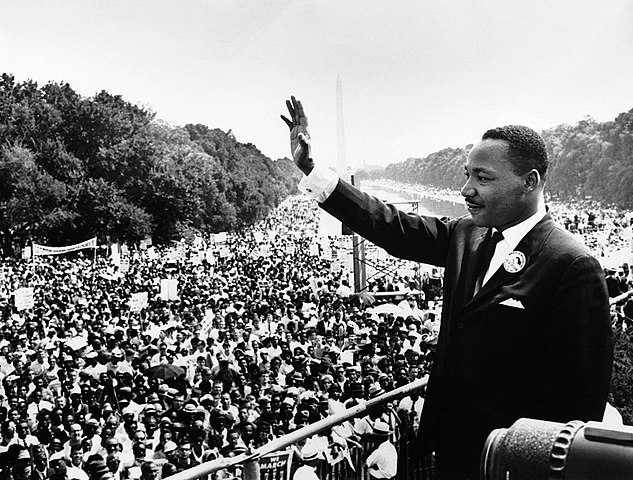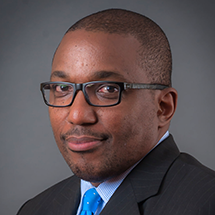Combating the Fragility of Hope

Guest blog post authored by John Holdsclaw IV, Chair of the CDFI Coalition.
Across the country today, we observe the national holiday celebrating the life of Dr. Martin Luther King Jr. The King Center’s (located in Atlanta) theme and call to action for this year’s observance is “The Urgency of Creating the Beloved Community!” While the pandemic has impacted what would have been a usual day of community service, I hope that as we spend time either at home or work today that we imagine what that Beloved Community would look like and serve in our own ways. Recent events over the past few weeks and months have shown us all the divisions, tribalism and the fragility of hope that exists in this country. Dr. King once said, “I refuse to accept the view that mankind is so tragically bound to the starless midnight of racism and war that the bright daybreak of peace and brotherhood can never become a reality… I believe that unarmed truth and unconditional love will have the final word.”
The Fifth Annual National Day of Racial Healing will be tomorrow, Tuesday, January 19, 2021. Hosted by the W.K. Kellogg Foundation (WKKF), the Day of Racial Healing is observed every year on the Tuesday following the King holiday. Per WKKF, the Day of Racial Healing is a time for contemplation and collective action on #HowWeHeal from the effects of racism. Fundamental to this day is a clear understanding that racial healing is at the core of racial equity. A big part of that collective action from ALL of us is the acknowledgement that racial inequities and disparity exist as well as being accountable for our own actions and in some cases, inactions. Please join WKKF and countless others in nearly 100 virtual events across the country to tomorrow to foster truth-telling, affirm our common humanity and inspire collective action toward a more just and equitable world. For more information on WKKF’s virtual events and additional information, please visit DayofRacialHealing.org. The Coalition is grateful to WKKF for their partnership with us to advance racial equity at the CDFI Institute and beyond.
Of the many campaigns that Dr. King led, I have always been most interested in his lesser-known advocacy efforts in Chicago (1965-1967). Following the passage of the Civil Rights Act of 1964, President Lyndon B. Johnson declared a “War on Poverty” during his State of the Union address. Following the passage of the Voting Rights Act of 1965, Dr. King turned his focus from civil rights throughout the South to human rights in the Northern cities to would address less visible but systemic discriminatory housing and economic practices in Chicago and its suburbs. The Southern Christian Leadership Conference (SCLC) joined the Coordinating Council of Community Organizations (CCCO) in Chicago to “End Slums” that would later be known as the Chicago Freedom Movement.
To further raise awareness of poor living conditions for Black Chicagoans and to be closer the movement, Dr. King himself moved his family into an apartment in Chicago’s West Side neighborhood of Lawndale. “We don’t have wall-to-wall carpeting to worry about, but we have wall-to-wall rats and roaches,” stated King to the Chicago Tribune shortly after he moved in January 1966. Dr. King advocated for laws and practices that would allow Blacks to purchase homes, have access to health care, quality education and employment opportunities. As the campaign gained momentum through non-violet demonstrations and marches, it was consistently met with racially fueled violence and intimidation from many who feared the impact of open housing on their neighborhoods. An agreement was eventually made with SCLC, CCCO, various housing boards, the Chicago Housing Authority, and mortgage brokers to address the inadequate conditions in the city. The Chicago Freedom Movement can easily be credited with passage of the 1968 Fair Housing Act. However, the Chicago Freedom Movement is just as appropriate today as it was in 1966.
Sadly, Dr. King would not live to see the end of the Poor People’s Campaign, the erection of the Resurrection City on the National Mall nor the Memphis Sanitation Workers’ Strike. In the face of a global pandemic, there is still a demand for quality jobs, living wages, the end to systematic racism, and need for affordable housing. Dr. King saw homeownership as the foundation to economic justice and civil rights. According to the U.S. Census, the homeownership rate in the U. S. was 64.6% in 2019, down from its peak of 69% in 2004 before the 2008 financial crisis. In 2019, the homeownership rate among white non-Hispanic Americans was 73.3%, compared to 42.1% among Black Americans. This 31.2 percentage point difference was the largest gap since the Census’ time series began in 1994.
When President Johnson declared his “War on Poverty” the national poverty rate was 19% or an estimated 35 million Americans. Prior to the pandemic in 2019, the official poverty rate in 2019 was 10.5% or an estimated 34 million. Coretta Scott King once said that “Struggle is a never-ending process. Freedom is never really won; you earn it and win it in every generation.”
We all play a role in this never-ending process and Community Development Financial Institutions can and will play a role addressing these issues facing our nation today and for future generations. More importantly, can we acknowledge the institutional barriers that exist for low- and moderate-income Americans and communities of color and take responsibility for our own actions, as we continue down a path of healing and the creation of a Beloved Community? I ask that you do not lose hope.

John Holdsclaw, IV is the Executive Vice President of Strategic Initiatives at National Cooperative Bank. Since its founding, NCB has an uncommon mandate to ensure our efforts benefit those most in need, supporting low-income communities and the expansion of cooperative initiatives. With this guiding principle, NCB contribute to the building blocks of sustainable communities: investing in clean energy, small businesses and affordable housing, expanding access to healthy food and affordable health care, plus much more.
